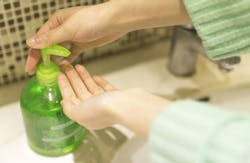Minnesota bans use of triclosan in consumer products
The governor of Minnesota, Mark Dayton, has signed a bill that effectively outlaws the use of triclosan in products such as soaps, shampoos and body washes. The ingredient has been linked to hormone disruption in animal studies and its use in Minnesota will be officially prohibited from January 2017.
This is not the only reason why triclosan has been banned. Recent studies revealed that the chemical also contaminated waterways after entering sewer systems. Most wastewater treatment plants are unable to pick up the chemical and remove it so it enters national waterways, causing potential damage to aquatic life and the environment.
The U.S. Food and Drug Administration considers triclosan to be safe for humans, although it has become the subject of a scientific and regulatory review, according to Time magazine. At present, results from studies suggesting that the ingredient might be a hormone disruptor do not provide sufficient data to issue a consumer alert against using products containing triclosan.
Some cosmetics and consumer goods companies have already started to phase out triclosan from their manufacturing processes. The ban on the chemical in Minnesota is the first statewide restrictive action on the use of triclosan in the United States, the Associated Press reported. According to State Rep. John Marty, who sponsored the bill, banning the ingredient in one state might create a domino effect and lead to further bans in other states.
